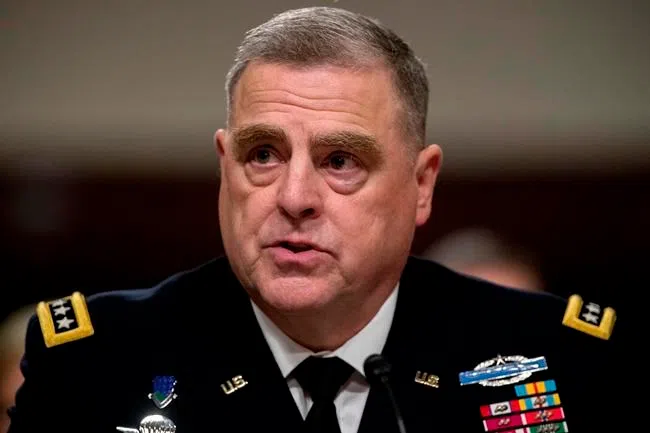
Trump picks Army chief of staff as next top military adviser
WASHINGTON — President Donald Trump announced Saturday that he wants a battle-hardened commander who oversaw troops in Iraq and Afghanistan to be the nation’s next top military adviser.
If confirmed by the Senate, Gen. Mark Milley, who has been chief of the Army since August 2015, would succeed Marine Gen. Joseph Dunford as chairman of the Joint Chiefs of Staff. Dunford’s term doesn’t end until Oct. 1. Trump said the date of transition is “to be determined.”
Trump used an early morning tweet to reveal his choice. “I am thankful to both of these incredible men for their service to our Country!” he said. Later Saturday, as the president left the White House for the Army-Navy football game in Philadelphia, he called Milley “a great gentleman and a great patriot.”
Dunford is a former commandant of the Marine Corps and commander of coalition troops in Afghanistan. Milley commanded troops during several tours in Iraq and Afghanistan.
